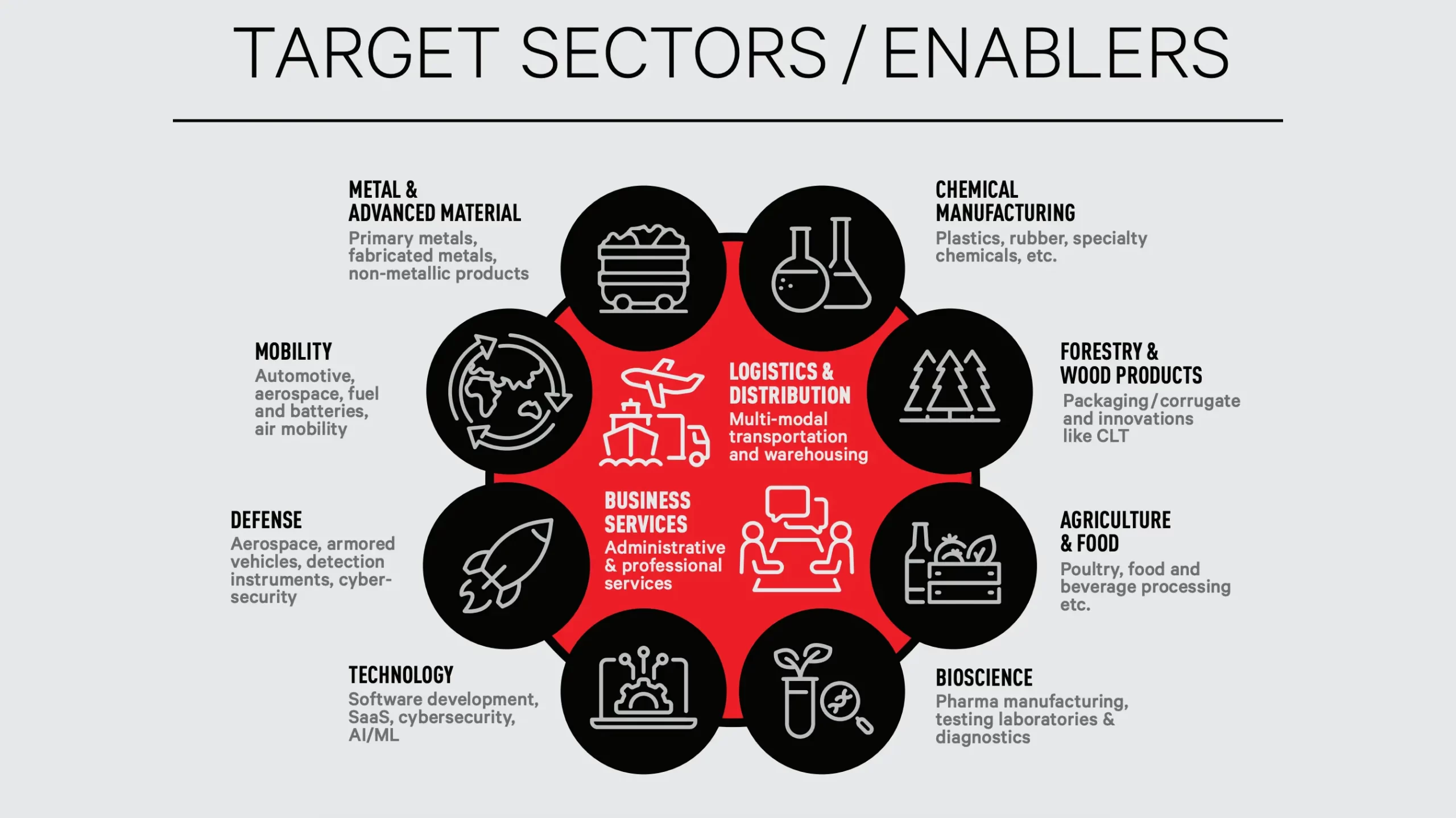Governor Kay Ivey has received a comprehensive economic strategic plan aimed at energizing Alabama’s long-term growth, presented by Commerce Secretary Ellen McNair. This forward-thinking initiative, called Catalyst, is set to guide the state’s economic trajectory for the next decade and beyond, solidifying Alabama’s leadership in economic development.
The Catalyst plan replaces the Accelerate Alabama framework, which has driven $67 billion in capital investment and nearly 170,000 job commitments since 2012. Governor Ivey emphasized the necessity of modernizing the state’s approach to economic growth.
“We must have an economic development strategy that prepares Alabama for the 2030s today,” Governor Ivey said. “New technologies are revolutionizing every aspect of the business world, and it’s vitally important that we’re ready for these fast-paced changes so we can remain competitive for projects that create good jobs and inject vitality into communities. Catalyst will keep us energized and in the game as the future brings new challenges.”
This next-generation strategic plan goes beyond traditional recruitment methods, focusing on elevating human capital, fostering entrepreneurship, attracting new talent, and promoting rural development. A significant aspect of the plan involves quality placemaking, leveraging Alabama’s outdoor recreation infrastructure to enhance the appeal of local communities.
The plan identifies key sectors for Alabama’s long-term economic goals, including mobility, linking the automotive and aerospace industries, defense, metal and advanced materials, chemical manufacturing, forestry and wood, agriculture and food, bioscience, and technology. Additionally, business services and logistics and distribution have been highlighted as critical enablers, capable of catalyzing growth across these priority sectors.
“With this inclusive strategic plan in hand, Alabama is committed to fostering a vibrant and diverse economy that can adapt to the rapidly changing global landscape,” Secretary McNair said. “By prioritizing collaboration, innovation, and strategic investment, Alabama is reinforcing its position as a top destination for business and economic growth.”
McNair, who took over the Alabama Department of Commerce earlier this year, was tasked by Governor Ivey to spearhead the development of the Catalyst plan. To fast-track its creation, a high-level task force was formed, featuring Greg Barker from the Economic Development Partnership of Alabama, Bill Poole representing Innovate Alabama, and Dr. David Bronner of the Retirement Systems of Alabama. Their teams made significant contributions to the plan’s development.
International consulting firm McKinsey & Company was brought on to provide in-depth analysis, supported by research teams from Troy University and Alabama A&M University. McKinsey conducted extensive quantitative and qualitative analyses, engaging with more than 400 economic developers, community leaders, and business executives. The process included 17 regional workshops and focus groups, ensuring a comprehensive and collaborative approach.
McKinsey will also assist with the launch of the Alabama Growth Alliance, a key initiative that brings public and private leadership together to strengthen Alabama’s economic development efforts. The firm will remain involved during the implementation phase of Catalyst.
“I want to extend my heartfelt thanks to the talented members of the Strategic Plan Task Force who dedicated their expertise and insight to the development of the Catalyst plan,” Secretary McNair said. “Greg Barker from EDPA, Bill Poole of Innovate Alabama, and Dr. David Bronner from the RSA and their teams all played pivotal roles in shaping this future-forward strategy. Their leadership, collaboration, and commitment have ensured that Alabama is well-positioned to seize future economic opportunities, and for that, we are truly grateful.”
With Catalyst now in place, Alabama stands ready to face the challenges and opportunities of the next decade, securing its economic future and ensuring the state remains competitive in a rapidly evolving global marketplace.















































